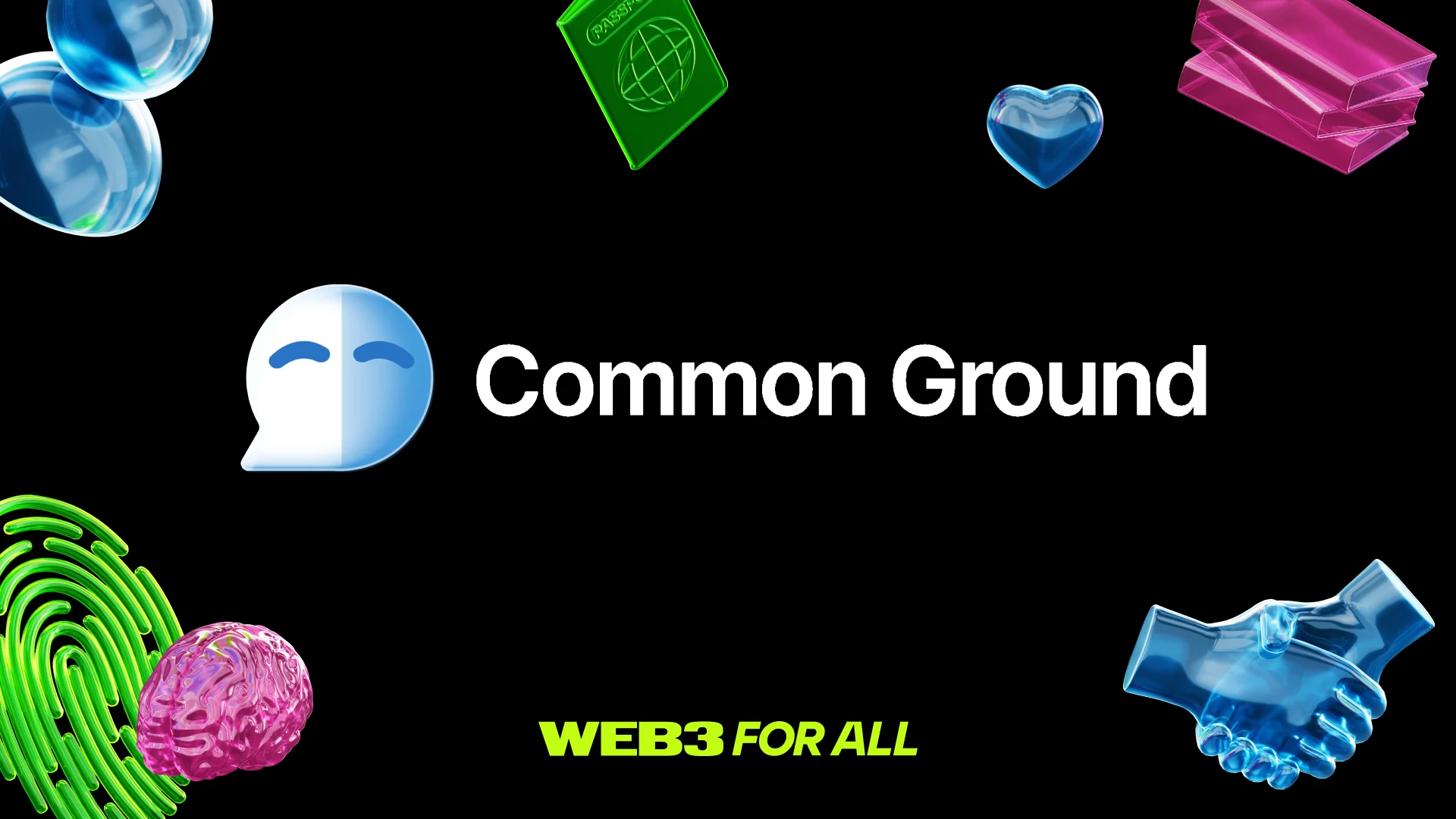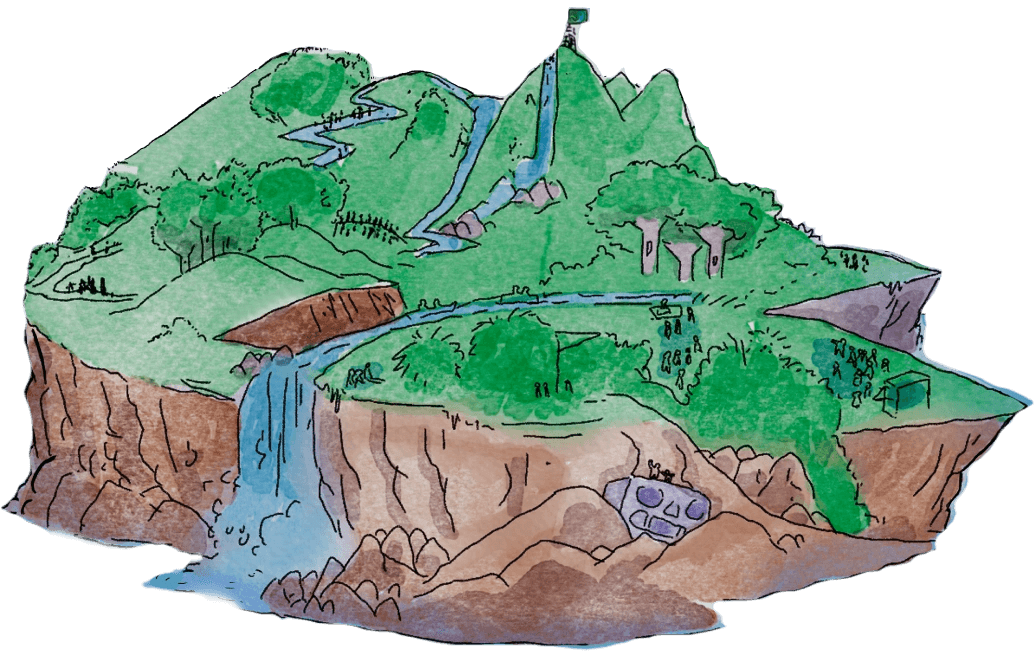Embracing Democratic Decision-Making: Learning from DAOs for Online Communities
Embracing Democratic Decision-Making: Learning from DAOs for Online Communities
Just as how voting mechanisms are pivotal for the operation of Decentralized Autonomous Organizations (DAOs), they can be instrumental for the governance of online communities as well.

Florian
Published on June 10, 2023
June 10, 2023

What are DAOs?
DAOs are essentially internet-native organizations governed by rules enshrined in computer code (smart contracts). These rules are transparent, open to scrutiny, and crucially, they are modifiable by the token holders of the DAO. This introduces a new, democratized form of governance where the decision-making power is with the people. One of the core mechanics that makes this possible is the voting mechanism within DAOs.
Participatory Governance and Stage-Wise Decision Making
One of the unique practices DAOs have adopted involves a stage-wise decision-making approach. Similar to this, online communities can implement a system where ideas are first introduced and debated in a discussion forum before proceeding to a preliminary vote. This democratic process ensures that all members have an opportunity to express their thoughts and concerns, thus leading to comprehensive, consensus-driven choices.
The Value of Temperature Check Voting
In DAOs, the "temperature check" vote has proven to be an invaluable tool for gauging the community's sentiment towards a proposal. For online communities, this could serve as a practical tool to refine proposals based on initial feedback before they are formally voted upon. It gives a glimpse into the community's leanings and allows for potential adjustments, ensuring decisions resonate with the majority.
Avoiding the Pitfalls of Voting Mechanisms
Designing these voting systems, whether for DAOs or online communities, requires careful thought to avoid potential pitfalls. For instance, if voting power is based on the number of tokens a member holds in a DAO or, in an online community's case, on the level of activity or seniority, there's a risk of forming a system where a handful of dominant members hold sway over decision-making. Therefore, it's crucial to design mechanisms that circumvent such a centralization of power while still appreciating members' commitment to the community.
The Future of Community Governance: DAO-Like Abilities
The intersection of DAOs and online communities signifies a fundamental shift in how we view governance in digital spaces. The characteristics of DAOs — decentralization, member-led decision-making, and inbuilt rewards systems — are increasingly being seen as desirable for online communities. Thus, all communities may eventually leverage DAO-like abilities for their governance. In this way, communities will democratize decision-making processes and increase member engagement, creating a more equitable and inclusive digital world.
Future outlook
The voting mechanisms in DAOs form the heart of their decentralized governance. It's a field ripe for experimentation, with different DAOs trying different methods to best capture the collective will of their community. As we continue to innovate in this space, it's crucial to keep exploring and refining these mechanisms to create more democratic, inclusive, and effective DAOs. By understanding and improving upon these systems, we inch closer to a future where organizations can truly be of the people, by the people, and for the people.
What are DAOs?
DAOs are essentially internet-native organizations governed by rules enshrined in computer code (smart contracts). These rules are transparent, open to scrutiny, and crucially, they are modifiable by the token holders of the DAO. This introduces a new, democratized form of governance where the decision-making power is with the people. One of the core mechanics that makes this possible is the voting mechanism within DAOs.
Participatory Governance and Stage-Wise Decision Making
One of the unique practices DAOs have adopted involves a stage-wise decision-making approach. Similar to this, online communities can implement a system where ideas are first introduced and debated in a discussion forum before proceeding to a preliminary vote. This democratic process ensures that all members have an opportunity to express their thoughts and concerns, thus leading to comprehensive, consensus-driven choices.
The Value of Temperature Check Voting
In DAOs, the "temperature check" vote has proven to be an invaluable tool for gauging the community's sentiment towards a proposal. For online communities, this could serve as a practical tool to refine proposals based on initial feedback before they are formally voted upon. It gives a glimpse into the community's leanings and allows for potential adjustments, ensuring decisions resonate with the majority.
Avoiding the Pitfalls of Voting Mechanisms
Designing these voting systems, whether for DAOs or online communities, requires careful thought to avoid potential pitfalls. For instance, if voting power is based on the number of tokens a member holds in a DAO or, in an online community's case, on the level of activity or seniority, there's a risk of forming a system where a handful of dominant members hold sway over decision-making. Therefore, it's crucial to design mechanisms that circumvent such a centralization of power while still appreciating members' commitment to the community.
The Future of Community Governance: DAO-Like Abilities
The intersection of DAOs and online communities signifies a fundamental shift in how we view governance in digital spaces. The characteristics of DAOs — decentralization, member-led decision-making, and inbuilt rewards systems — are increasingly being seen as desirable for online communities. Thus, all communities may eventually leverage DAO-like abilities for their governance. In this way, communities will democratize decision-making processes and increase member engagement, creating a more equitable and inclusive digital world.
Future outlook
The voting mechanisms in DAOs form the heart of their decentralized governance. It's a field ripe for experimentation, with different DAOs trying different methods to best capture the collective will of their community. As we continue to innovate in this space, it's crucial to keep exploring and refining these mechanisms to create more democratic, inclusive, and effective DAOs. By understanding and improving upon these systems, we inch closer to a future where organizations can truly be of the people, by the people, and for the people.
What are DAOs?
DAOs are essentially internet-native organizations governed by rules enshrined in computer code (smart contracts). These rules are transparent, open to scrutiny, and crucially, they are modifiable by the token holders of the DAO. This introduces a new, democratized form of governance where the decision-making power is with the people. One of the core mechanics that makes this possible is the voting mechanism within DAOs.
Participatory Governance and Stage-Wise Decision Making
One of the unique practices DAOs have adopted involves a stage-wise decision-making approach. Similar to this, online communities can implement a system where ideas are first introduced and debated in a discussion forum before proceeding to a preliminary vote. This democratic process ensures that all members have an opportunity to express their thoughts and concerns, thus leading to comprehensive, consensus-driven choices.
The Value of Temperature Check Voting
In DAOs, the "temperature check" vote has proven to be an invaluable tool for gauging the community's sentiment towards a proposal. For online communities, this could serve as a practical tool to refine proposals based on initial feedback before they are formally voted upon. It gives a glimpse into the community's leanings and allows for potential adjustments, ensuring decisions resonate with the majority.
Avoiding the Pitfalls of Voting Mechanisms
Designing these voting systems, whether for DAOs or online communities, requires careful thought to avoid potential pitfalls. For instance, if voting power is based on the number of tokens a member holds in a DAO or, in an online community's case, on the level of activity or seniority, there's a risk of forming a system where a handful of dominant members hold sway over decision-making. Therefore, it's crucial to design mechanisms that circumvent such a centralization of power while still appreciating members' commitment to the community.
The Future of Community Governance: DAO-Like Abilities
The intersection of DAOs and online communities signifies a fundamental shift in how we view governance in digital spaces. The characteristics of DAOs — decentralization, member-led decision-making, and inbuilt rewards systems — are increasingly being seen as desirable for online communities. Thus, all communities may eventually leverage DAO-like abilities for their governance. In this way, communities will democratize decision-making processes and increase member engagement, creating a more equitable and inclusive digital world.
Future outlook
The voting mechanisms in DAOs form the heart of their decentralized governance. It's a field ripe for experimentation, with different DAOs trying different methods to best capture the collective will of their community. As we continue to innovate in this space, it's crucial to keep exploring and refining these mechanisms to create more democratic, inclusive, and effective DAOs. By understanding and improving upon these systems, we inch closer to a future where organizations can truly be of the people, by the people, and for the people.
Read more articles



Web3 for All
Consensys, the company behind Metamask, Infura, Linea and other significant projects in web3, features Common Ground prominently on their blog.

·
Oct 2, 2024



The App Revolution: what's hot in web3 right now?
After years of intense focus on infrastructure and protocols, the spotlight is finally shifting to applications. In this blog post, we'll dive deep into Web3 applications, exploring how they're reshaping various aspects of our digital lives.

Florian Glatz ·
Sep 26, 2024



Ecosystems as Groups of Groups: a new primitive in large-scale coordination?
Web3 more than any other sector of the economy explicitely designs, develops and evolves the idea of ecosystems. For the first time, a group of researchers in web3 has analyzed the ecosystem phenomenon as an emerging group of groups primitive.

·
Sep 5, 2024
Menu
Menu
